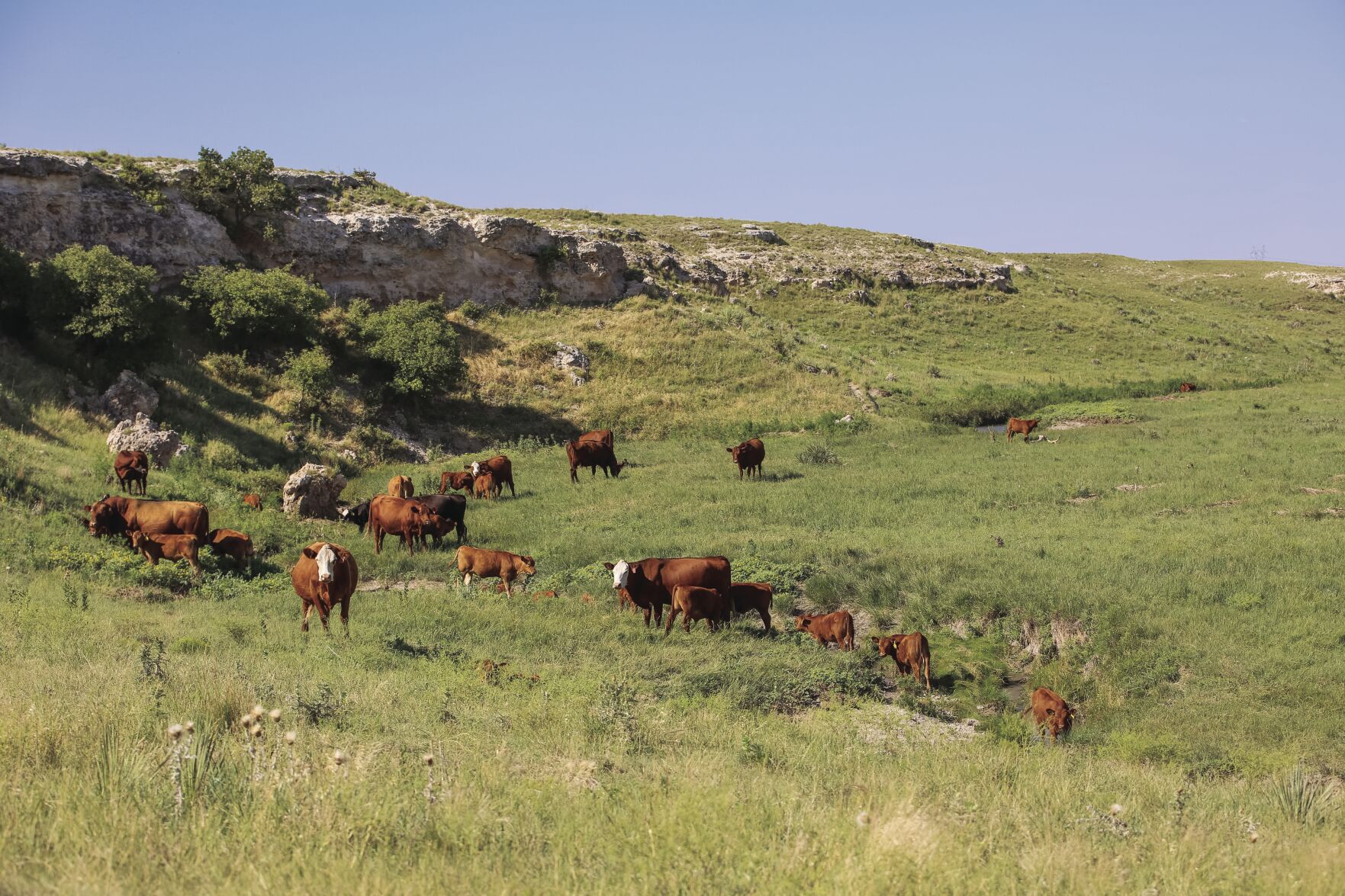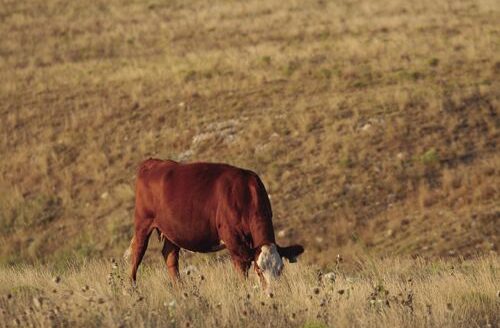Professional agricultural speaker Damian Mason discussed how factors like religion, ideology, protein, profit and power influence the agricultural industry overall during the recent National Cattlemen’s Beef Association Reboot event.
When it comes to religion, Mason says many folks in the business of agriculture are believers. This is good, but in America, organized religion is declining and food is quickly becoming a new religion.
“Why do I say food is a new religion, because it is and it’s not about, “Oh, I worship ice cream” or “I just absolutely think that the steak is divine,’” he said. “No, I’m talking about the movement of food. The movement of food and beliefs and foodieism is on the verge of religion.”
Mason said in the U.S. in 1972 only 5% of Americans identified as being not religious. Two years ago, that number was up to 25%.
The more affluent people become, the more they want to be involved with something and some adopt new religions, he said, adding it was not the “Catholic church my mother and father went to” instead they want new followings.
“Food has become that,” he said. “Environmentalism is where these things come together, and is now bordering on a religion.”
It also ties into ideology and politics, Mason said. It’s hard to change people’s minds now. For many years, those people who believe their religion was the right one tried to force it onto others.
“And that’s what we’ve got going on when it comes to the environmental religion, then meets ideology,” he said.
For example, some politicians have come to understand hyperbole, emotion and many have a large following on social media. Mason said he’s talking about the usage of something that is ideology and making it a religion then using it for power.
“Corporations like Burger King got maligned by us in the ag and beef industry,” Mason said. “But remember, we’re a very small part of the population.”
One example is Burger King’s commercial last summer about how emissions from cattle were bad for the environment. The agricultural industry responded fast and loud.
“We in agriculture threw up our arms, screamed, yelled and Burger King apologized, but remember we’re only about 1%, of the population,” he said. “Us screaming bloody murder over the Burger King commercial was fine, it actually helped them. Got them a little bit more accolades. Got them more notoriety and more commercials got shown because of it. They profit from it.”
Mason said examples of the ideology and the taking on the religion-like movement of environmentalism is the new angle against beef—think animal rights activist and vegans trying to control the dinner plate of America.
“They are only a few percent of the population,” he said. “So what did they do? They go after things that they know are emotionally evoking subjects. It used to be animal rights.”
Now the attention has turned to the environment.
“And the problem is the animal rights thing had a certain amount of play and it got some. It gets some legislation accomplished,” he said. “But the environmentalism thing is more broad based.”
Agriculture is doing the best job it can when it comes to the environment.
“Today we are producing the same amount of beef with one-third less animals than we did just in 1977,” he said. “So in less than 50 years, we have reduced our number of animals by one-third and we still put more beef out the door. That’s environmentalism.”
Mason said regenerative agriculture includes environmentalism and modern practices for windbreaks, proper forest management, proper range management, using chemicals to get the most out of pastures to get greater stocking densities.
“That’s environmentalism,” he said. “All the things that we do—protecting our streams, making sure that we limit the number of cattle, not over grazing, efficiency of production—those are all good for environmental causes.”
But that doesn’t actually work for the opposition because those are facts based and they are true data points. The other side doesn’t want the data.
As far as activism goes, it plays on emotion and “big visuals” to get the message across. Agriculture doesn’t have many “big visuals” because it’s really only 1% of the population.
“I’d like to show more images of cattle properly utilizing a cellulosic fiber that cannot ever be used for human consumption and make it into something that is human digestible protein from beef,” he said. “That’s our story, and we got to continue to stick with that.”
Activism, on the other hand, uses large visuals.
“And also make sure that you get the media there. But the media will be there because the media loves controversy,” Mason said. “Remember this is the one thing that I tell all of my ag audiences, when they say all the media has a responsibility. The media has a responsibility to do what?”
Mason said the only responsibility the media has is to earn a profit for its shareholders. He calls it corporate media
“Do yourself a favor and stop calling it the news and call it the media and the media’s mission is to make money for its shareholders,” he said. “How does it do that? By getting clicks, viewers, listeners, subscribers. That’s it.”
The more people that can view, click, watch, and tune in, the more ads the media can sell. That’s “simple activism,” according to Mason.
“Those that work against us know that you can create a big visual with just 100 people carrying signs walking around, chanting, etc., and the media will show up,” he said. “That’s what we’re dealing with.”
Activism has turned into a business, and the anti-ag industry has discovered they can create very big visuals—spending their money on inflammatory billboards and getting to kids through their science.
“We must understand this as a business,” he said. “This business uses folks like those sign carriers as useful idiots.”
The people at the top of the business are the ones who get paid. They have corporate offices in metro areas, and figure out how to put out press releases and create a “tremendous amount of agitation” and how to hire lawyers and public relations people to get more media.
“Because the more you do that the more the fundraising comes in,” Mason said.
Mason said in the old days if you questioned religious doctrine—that maybe the solar system was heliocentric rather than geocentric, meaning sun versus earth, “they called you a heretic and threw you in jail.”
“What happens now if you question the motives of billionaires that say they are doing something philanthropic for the good or for the benefit of climate change?” he said. “If you even question it, you are laughed out of the room.”
You could be called a heretic if you question the motives of the billionaires because they “know what’s better for the world.”
“That’s why I continue to bring this back to religion meets ideology and that goes to be profit and power,” he said. “Do you really believe that Bill Gates, his effort, is about saving humanity? If he cared so much about saving humanity, why is he so heavily invested?”
Mason said Gates has billions of dollars invested in climate change and plant based meat companies. He owns just under 250,000 acres of farmland in the United States. Is that because of his philanthropy causes or because he wants to feed people?
“Maybe there’s something bigger at play. Maybe something more sinister at play,” Mason said. “This is again a person that is using his power to go to Washington, D.C. and have his will exerted on people to continue to build his empire on how he believes the world should be. And again, he’s more than happy to exploit the efforts of the activists and the conflict industry and the useful idiots that are out there carrying signs.”
Moving on to fake meat, Mason said there’s only about 1% of the protein market that’s being consumed as artificial meat.
“I don’t see it ever going great big,” he said. “I want to make sure that we as an industry understand the consumer actually right now doesn’t have a lot of desire for it. That’s why it’s not taking off.”
There was a lot of money behind the Impossible Whopper, and in spite of all the marketing and PR it got it was essentially a flop.
“So remember behind the movement is always usually profit, power, and then the usage of a religious movements, and exploiting ideology,” he said.
Mason is equally concerned about Cory Booker who is a new member of the Senate Agriculture Committee. Booker, who Mason calls “a radical vegan,” and who before even being appointed to the committee has been quoted saying he will limit farm size. He also has a more radical agenda about using agriculture to repay reparations.
Some of these groups use various tactics to show their power, and that there’s a “constant crisis” that will have devastating effects. Often they throw out time lines to create the crisis and for the “average non-scientific minded American, they believe it.”
“Because when you tell them something enough, “Oh my gosh, we must only have nine years until this is going to be a problem,” Mason said.
Mason remembers the time when people were told there wouldn’t be enough gas and oil, and it was hard to find during the oil crisis of the 70s and 80s, but 50 years later there’s still gas.
“They use emotions not facts,” Mason said. “This is where agriculture struggles. We like to tell people the data.”
The antagonists use an amazing amount of media as a willing accomplice. The “useful idiots” carry signs and march against whichever cause pays more.
“They’re nothing more than unpaid soldiers for those that actually are pulling the puppet tricks,” Mason said. “They obviously have a lot of money and can get legislation approved and then also they have certain politicians that are in their pocket.”
Kylene Scott can be reached at 620-227-1804 or [email protected].




